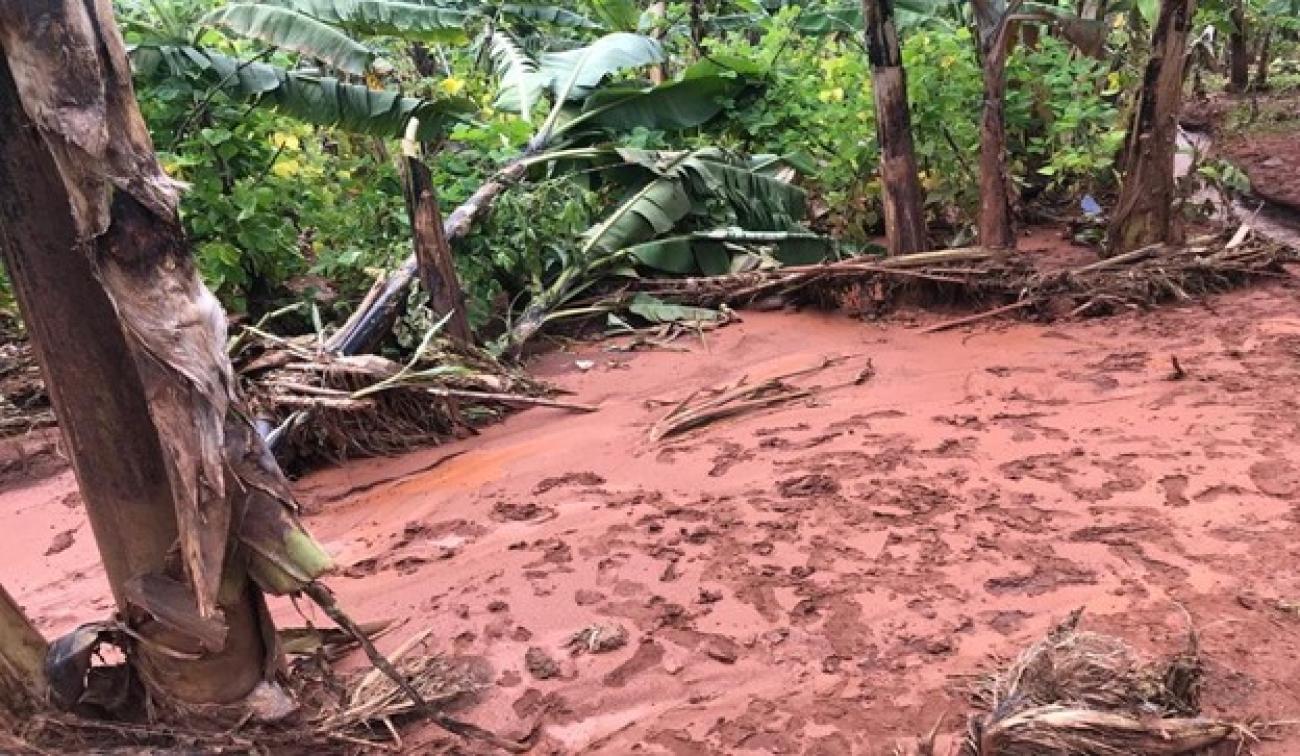In the wake of last year's global shock from the impacts of climate change, Rwanda found itself similarly affected. Lives were lost, essential infrastructure such as schools, hospitals, and roads were decimated, and agricultural activities suffered significant destruction.
On one ordinary evening, Alphonsine Nyirabagenzi and her family went to bed as usual. Little did Alphonsine anticipate waking up to the devastating sight of her entire farm washed away by the floods that ravaged various regions of Rwanda in May 2023.
For people like Nyirabagenzi -- a resident of Gihango sector Rutsiro district western province who entirely depended on farming to feed and sustain her family were totally left hopeless.
Gradually, the glimmer of hope began to return with the concerted efforts of the Government, and various partners who provided assistance to the vulnerable families. Through collaborative initiatives and compassionate interventions, essential support was extended, helping these families to rebuild their lives and communities.
“Our farm was swept away by the flood, leaving us in despair during a very challenging time. We felt hopeless. However, we are immensely grateful to Government as well as relevant UN agencies for their intervention. Their provision of seeds has been instrumental in enabling us to restart our farming activities. Today, we have managed to regain our footing and rebuild what was lost” said Nyirabagenzi.
USD 1.5 million was mobilized from the UN Central Emergency Response Fund (CERF) for affected communities and this signifies the international community's solidarity and commitment to supporting Rwanda's timely response to climate shocks.
Primarily addressing floods, the allocation enabled a rapid, targeted response focusing on food security, livelihoods, health, and shelter. As a result, 82,566 individuals, ultimately benefited from these interventions-- with 50% being women and girls, and 3,514 persons with disabilities.
Additionally, it spurred resource mobilization from other sources, totaling an additional USD 810,000 for bolstering the emergency response.
The provision of essential services, including food and cash-based transfers, along with access to health services, brought hope to displaced populations, supporting their recovery efforts.
From its inception, the Central Emergency Response Fund (CERF) allocation prioritized inclusivity, focusing on vulnerable groups such as teenage mothers, women heads of households, and persons with disabilities. This commitment underscores the importance of addressing diverse needs in crisis situations.
The United Nations in Rwanda and its Partners are proactively preparing for the upcoming rainy season in collaboration with the Government of Rwanda’s activated emergency clusters. The recent establishment of the Disaster Preparedness and Response Team (DPRT) serves as a strategic coordination mechanism for humanitarian partners supporting the Government of Rwanda in emergency preparedness and response efforts -- underscoring commitment to the Government of Rwanda and its people in safeguarding lives and mitigating the impact of natural disasters.










